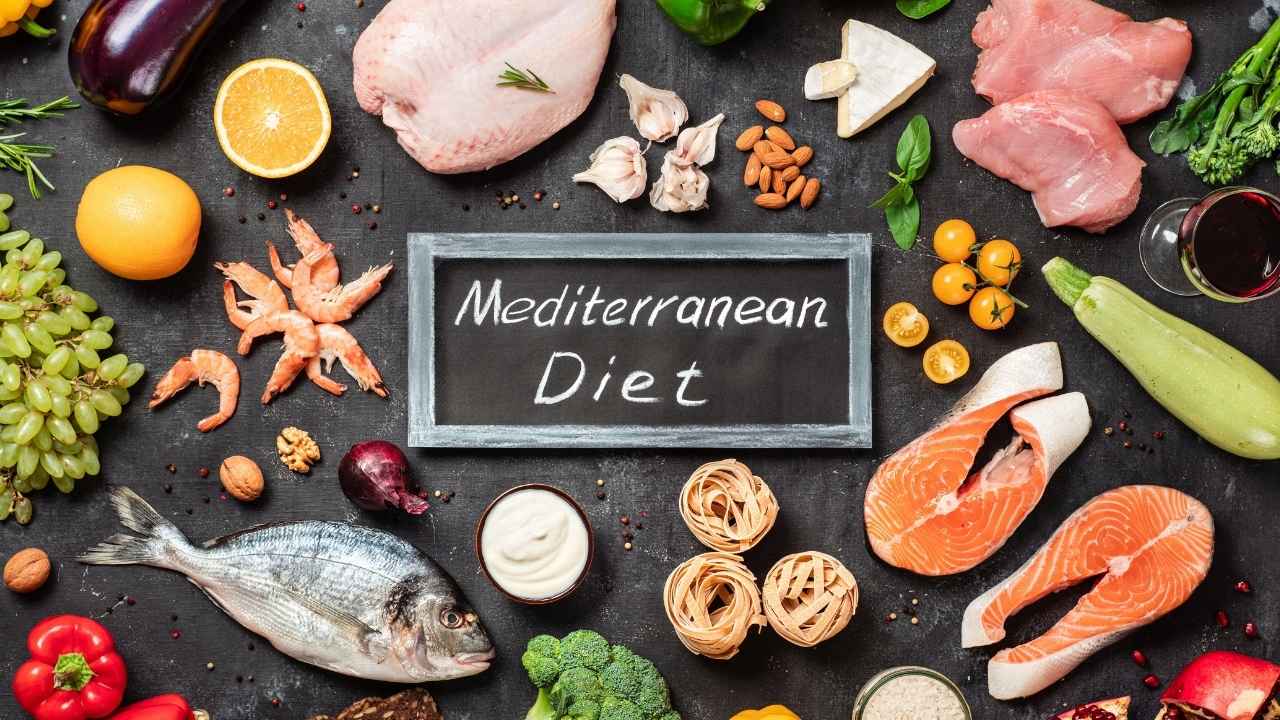Plant-Based Mediterranean Diet
The plant-based Mediterranean diet is a perfect blend of two proven approaches to healthy eating—plant-based principles and the traditional Mediterranean diet. This meal plan emphasizes whole, minimally processed foods, delivering a nutrient-packed diet that supports overall health. Free from animal products, this diet focuses on plant-based proteins, healthy fats, and a variety of fruits and vegetables, making it ideal for those seeking a heart-healthy, environmentally-conscious way of eating.
What is the Plant-Based Mediterranean Diet?
The Plant-based Mediterranean Diet is a variation of the traditional Mediterranean diet, which is known for its emphasis on fresh, whole foods like fruits, vegetables, whole grains, healthy fats, and plant-based proteins. While the traditional Mediterranean diet includes seafood, eggs, and dairy, this plant-based version removes all animal products, making it suitable for those following a vegan or plant-based lifestyle.
Key Focuses of the Plant-Based Mediterranean Diet
1. An Abundance of Fruits and Vegetables
Fresh, colorful fruits and vegetables are the
cornerstone of this diet, providing essential
vitamins, minerals, antioxidants, and fibre to
support overall health.
2. Whole Grains Over Refined Grains
Choose whole grains like quinoa, brown rice,
farro, and whole wheat over refined grains. Whole
grains are packed with fibre and nutrients that
support digestion and keep you feeling full longer.
3. Lentils, Beans, Nuts, and Seeds
These plant-based sources of protein are rich
in fibre, healthy fats, and essential amino acids.
They help maintain muscle mass and promote heart
health.
4. Healthy Fats Like Avocado and Olive
Oil
Unsaturated fats, especially from
olive oil,
avocados, nuts,
and seeds, are a critical component
of the Mediterranean diet. These fats support heart
health, lower inflammation, and provide long-lasting
energy.
5. Plant-Based Proteins
Protein sources such as
tofu, edamame,
chickpeas, and
lentils replace animal products
while still providing essential amino acids.
Foods to Avoid or Limit
- Highly processed foods: Packaged snacks and ready meals often contain unhealthy additives and excess salt.
- High sugar foods and drinks: Avoid refined sugar and opt for natural sweeteners like fruit or maple syrup.
- Saturated and trans fats: Limit unhealthy fats from processed foods and focus on unsaturated fats from whole sources like nuts and seeds.
- Excessive salt: Reduce salt intake to avoid increasing blood pressure.
- Red and processed meats: These foods are excluded in the plant-based version of the Mediterranean diet.
Why Choose the Plant-Based Mediterranean Diet?
Research has shown that the Mediterranean Diet provides numerous health benefits, including:
- Improved heart health: The diet is rich in healthy fats, fibre, and antioxidants, which help lower cholesterol, reduce blood pressure, and promote cardiovascular health.
- Better weight management: By focusing on whole, unprocessed foods, the diet helps maintain a healthy weight.
- Reduced risk of chronic diseases: The abundance of fruits, vegetables, and healthy fats helps reduce the risk of diseases such as diabetes, heart disease, and certain cancers.
In addition to these benefits, adopting a plant-based version of the Mediterranean diet can also align with ethical or environmental goals, as it avoids all animal products.
Sample Plant-Based Mediterranean Meal Plan
Here’s a sample meal plan that aligns with the plant-based Mediterranean diet, providing 1900-2000 calories per day and over 100g of protein:
Breakfast: Oatmeal with Chia Seeds, Fresh Berries, and Almond Butter
- A fiber-rich, antioxidant-packed breakfast that includes healthy fats from chia seeds and almond butter.
- Calories: 350 | Protein: 15g | Fibre: 10g
Morning Snack: Carrot Sticks with Hummus
- A nutritious snack that provides plant-based protein, fibre, and healthy fats.
- Calories: 150 | Protein: 5g | Fibre: 6g
Lunch: Quinoa Salad with Chickpeas, Avocado, and Spinach
- This salad is loaded with plant-based protein, healthy fats, and fibre.
- Calories: 450 | Protein: 20g | Fibre: 12g
Afternoon Snack: Mixed Nuts and Fresh Apple Slices
- A balanced snack combining natural sugars, healthy fats, and plant-based protein.
- Calories: 180 | Protein: 6g | Fibre: 5g
Dinner: Lentil Stew with Brown Rice and Steamed Vegetables
- A hearty, protein-packed dinner that provides fibre and complex carbohydrates.
- Calories: 500 | Protein: 30g | Fibre: 14g
Evening Snack: Walnuts and Dark Chocolate
- Walnuts provide omega-3 fatty acids, and dark chocolate offers antioxidants.
- Calories: 150 | Protein: 5g | Fibre: 4g
Benefits of Plant-Based Mediterranean Eating
By following a plant-based Mediterranean diet, you can enjoy the following benefits:
1. Heart Health: Healthy fats from olive oil, nuts, and seeds help reduce cholesterol and support cardiovascular function.
2. Weight Management: High fibre foods like whole grains, legumes, and vegetables keep you full longer, helping with weight management.
3. Reduced Inflammation: Plant-based foods are rich in antioxidants and omega-3s, which can help reduce inflammation and lower the risk of chronic disease.
4. Sustainability: Eating plant-based is not only beneficial for health but also reduces environmental impact by limiting reliance on animal products.
Conclusion
A plant-based Mediterranean diet is a nutritious, balanced approach to healthy eating, combining the benefits of plant-based foods with the heart-healthy principles of the Mediterranean diet. By focusing on whole grains, plant-based proteins, fruits, vegetables, and healthy fats, this meal plan can improve heart health, support weight management, and reduce the risk of chronic diseases.
For those seeking a completely plant-based alternative to the traditional Mediterranean diet, this meal plan provides all the essential nutrients needed to thrive, including more than 100g of protein per day from plant-based sources.
References
1. Diet Review: Mediterranean Diet. (2024, May 9). The Nutrition Source. https://nutritionsource.hsph.harvard.edu/healthy-weight/diet-reviews/mediterranean-diet/
2. Ostfeld RJ. Definition of a plant-based diet and overview of this special issue. J Geriatr Cardiol. 2017 May;14(5):315. doi: 10.11909/j.issn.1671-5411.2017.05.008. PMID: 28630607; PMCID: PMC5466934.
3. Guasch‐Ferré, M., & Willett, W. C. (2021). The Mediterranean diet and health: a comprehensive overview. Journal of Internal Medicine, 290(3), 549–566. https://doi.org/10.1111/joim.13333
Ready to level-up?
Create meal plans 10x faster, follow up with your clients through our mobile app, and never struggle with meal planning or recipe management again.
